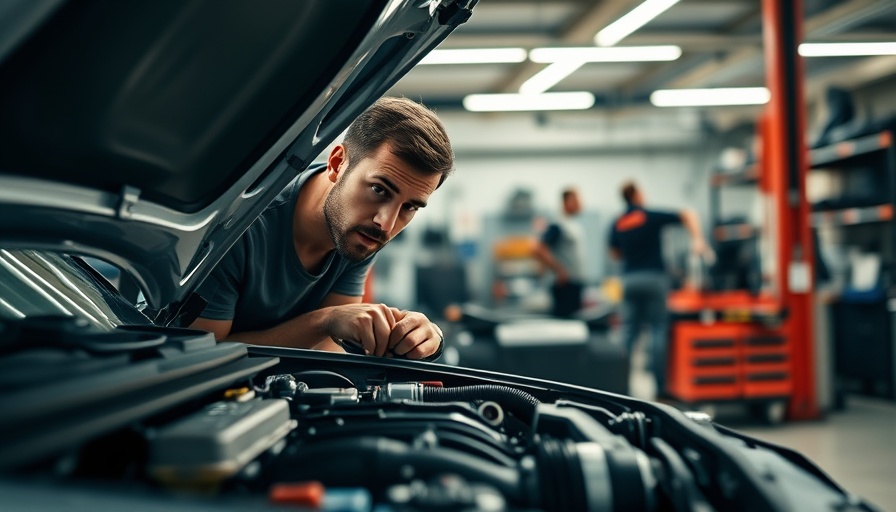
Understanding Tariffs: A Growing Concern for Car Owners
The automotive industry is currently facing some significant challenges, primarily due to shifting tariffs affecting car prices and repairs. In recent months, changes in trade policies have created an uneven global tariff structure that impacts automotive manufacturing and repair operations. For instance, China recently reduced tariffs for 90 days, yet U.S. tariffs on imported auto parts range from 10% to 25%, putting pressure on car manufacturers to rethink their sourcing strategies.
The Impact on Automotive Repair Costs
One major concern for car owners is the potential rise in auto repair costs. As tariffs increase the costs of parts, repair shops may have to pass these costs onto consumers, leading to higher prices for services like automotive maintenance and repair. Tariff policies affect the supply chain and can even lead to shortages of essential parts. For instance, a rise in tariffs could mean that certain parts take longer to arrive, which could delay service times for customers.
Strategies for Navigating the Tariff Landscape
Manufacturers are already exploring various strategies to cope with these changes. Reshoring production and diversifying supply chains have emerged as potential solutions, helping to mitigate the risks associated with importing parts. For everyday consumers, staying informed about potential price changes in the automotive sector is crucial. For car owners, this knowledge can guide decisions on when to service their vehicles or whether to plan for longer wait times for repairs.
Looking Ahead: What Lies Ahead for the Auto Industry
As these tariffs continue to evolve, the automotive landscape will also transform. Keeping an eye on these developments is essential for anyone involved in car ownership, maintenance, or automotive repair. Understanding how tariffs might influence costs now can provide a strategic advantage when making decisions about car repairs and maintenance.
In summary, as tariffs create a turbulent environment within the auto industry, awareness about these changes will empower consumers to manage their automotive costs effectively. Knowledge is power, especially when it comes to keeping our vehicles running smoothly.
 Add Row
Add Row  Add
Add 




Write A Comment